NEW book on Intellectual Property Statistics to inform Trade in Ideas
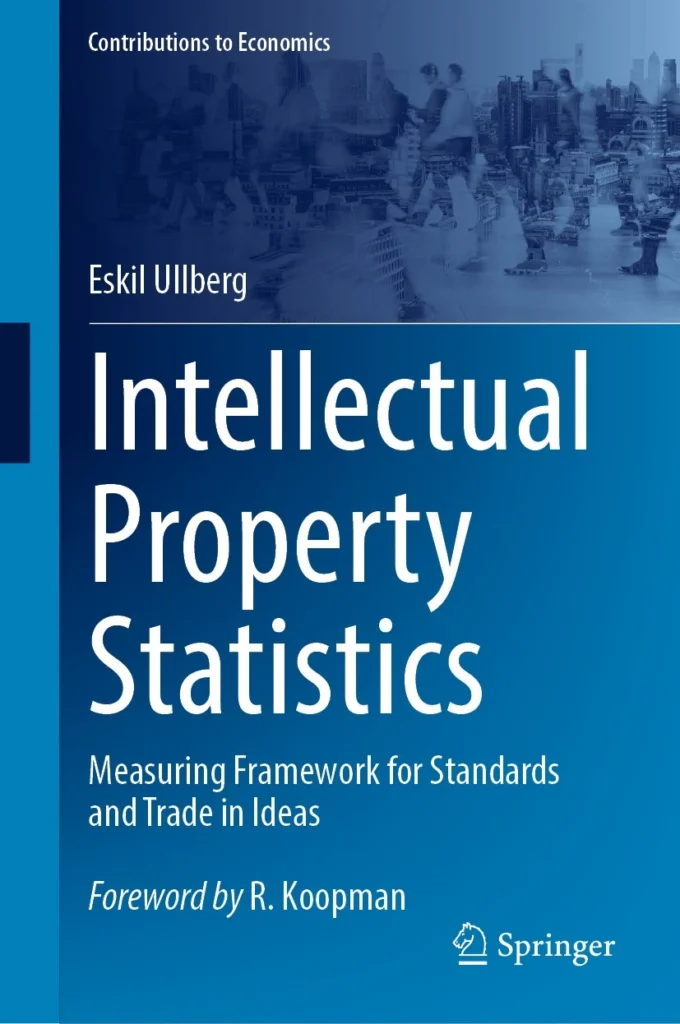
What is the value of cross-border Trade in Ideas (IP)? This question can only be given a sketchy answer today as theories of value, methods and data are lacking to provide accurate information for policy makers, businesses and inventors. This information is important for a well functioning market in patents, especially North-South exchange in patented technology, at a time of global issues related to food/water , energy, ICT(AI), climate/bio-diversity. IP Statistics begins to answer these questions and invites to a discussion among peers in statistical and accounting standards as well as users of this new information for an efficient Trade in Ideas.
- Provides a statistical framework to measure the value of trade in intellectual property (IP)
- Explores ways to introduce the framework in international standards
- Discusses a proof of concept performed in a developing country
Praise for Intellectual Property Statistics…
“In this book, Prof. Ullberg has undertaken a Herculean task – to lay out a paradigm for the collection of IP Statistics to ensure that the … market of trade in ideas has the information and data necessary to function well.
[the] volume should be viewed as a starting point, a work in progress, but an important one that could very well influence the development of this important set of data on trade in ideas.
At a time when global issues … require both new ideas and the spread of those ideas widely to help ensure both economic growth and continued global economic convergence data that helps us monitor and evaluate what is happening in trade in ideas will be extremely valuable.”
– Robert Koopman, American University, Washington, DC, USA and
Former Chief Economist, World Trade Organization, Geneva, Switzerland
The book is available at Springer Nature, Amazon, and other e-bookstores: https://link.springer.com/book/10.1007/978-3-031-36386-3
Interest in presentations/workshops on this theme?
Please contact E. Ullberg directly for interest in presentations/workshops and discussions on testing and implementing the proposed framework: Balance of Payment Statistics, Business Accounting, Inventor dialogues. Email: eskil@ullberg.biz or X: EskilUllberg
Trade in Ideas Program: Start-up Phase
The 5th meeting of the informal team of the trade in ideas program took place today, October 30, at WTO.
The purpose of the program is to leverage the human capital formation of especially developing nations through markets in patents. The goal is to reduce risk and uncertainty in such markets for inventors so they can thrive. This is an institutional issue.
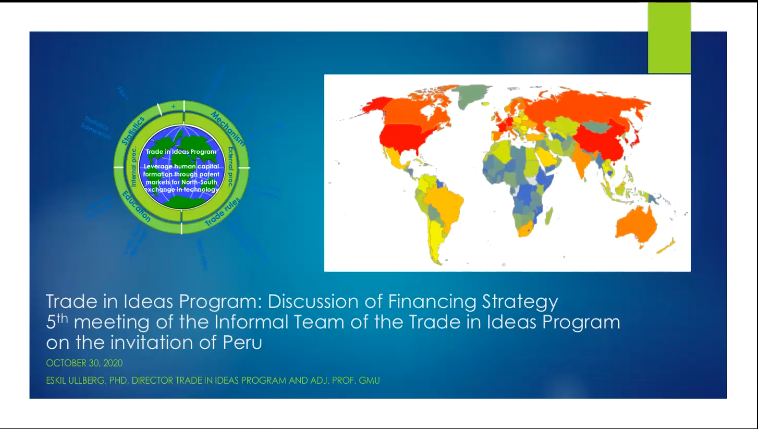
The purpose with the 5th meeting was to discuss the start-up phase following the successful completion the pilot-phase in January. This phase will establish the “infrastructure”: improving market efficiency, creating statistics on trade flows in ideas and performing field experiments to test out cross-border trade rules. Later stages will also include education programs of the next generation of managers.
Peru invited to the meeting and in an opening communication expressed confidence in the economic soundness of the program and especially stressed the focus on the facts based applied research approach of the program to better understanding the actual markets in cross-border patent licensing and transfers, the actors, and other issues. Peru also commented on the interdisciplinary nature of the program and the broad team that had been created across ministries and agencies to carry out the pilot-study and is now ready to carry out a planned workshop with the Pacific Alliance countries to do a “field experiment”. Cameroon, who joined the informal group on Oct 23, proposed to write a memorandum of understanding (MOU) between the countries interested in the program. The representative also pointed out that is was important to “be part of the solution”, not only wait for technology to come from abroad. Mexico, who was new to the team, will investigate how to involve the technical cooperation between the Pacific Alliance countries, and then consider possible further steps. The senior policy advisor from the ministry of trade in Kenya joined on-line and pointed at Kenya as a “hub for inventions” and continued dialogue with the program. The Dominican Republic stressed the cooperative nature of the program and how inventors could benefit from external partners, and much was to learn.
A second part involved funding strategies for the start-up phase, after Sweden’s funding of the pilot-phase has ended. Two main strategies were discussed: A regional approach, thus regional cooperation funding for regional field studies, and an “outreach group” to approach interested countries.
A follow-up meeting to move on particular projects and funding is planned for December 10, 2020.
The PPT from the meeting can be found here.
For further information on the program and interest to join the informal team please contact by mail at: eskil@ullberg.biz.
Economic efficiency of patent markets: SEP licenses under FRAND conditions
A long-standing principle of patent systems is that the patent holder can decide whom to license based on the field-of-use and what to ask, creating a mechanism to price differentiate, that is, to charge different prices for the same patented technology, depending on the value of its use.
Such a mechanism allows the patented technology to be distributed (allocated) through markets to a maximum number of competing and non-competing users (firms), at prices based on the (risky and uncertain) value of their future use (in new innovations), adding to the revenues (and likely profits) of inventors.
We examine this principle by means of a literature review and discuss, both in a short-run static and a long-run dynamic setting, the economic efficiency of such price differentiation (price ‘discrimination’ in the economic literature) by field-of-use with respect to licensing contracts concerning patents essential to a standard,2 that is, Standard Essential Patents (SEPs) on Fair, Reasonable and Non-Discriminatory (FRAND) terms and conditions.
Article ref.: Ullberg, 2019, Economic efficiency and field-of-use pricing of SEP licences under FRAND terms, Queen Mary Journal of Intellectual Property, Vol. 9 No. 4, pp. 392–413
DOI:https://doi.org/10.4337/qmjip.2019.04.02
Also available at: 4iP Council’s web page.
Abstract
This article is concerned with the producer market in patented technology, and whether price differentiation based on field-of-use – a common strategy adopted by businesses with high fixed costs – is economically efficient. The focus is on the licensing of Standard Essential Patents (SEPs) on Fair, Reasonable and Non-Discriminatory (FRAND) terms and conditions, including also the Internet of Things (IoT) applications, and the economic growth in the digital economy, especially for small and medium sized enterprises (SMEs). The central argument proposed is that the absolute difference in the value between usages of essential standardized technologies determines whether a single price for all usages or specific field-of-use prices are economically efficient. A small difference in value should result in a single price and a large difference in different prices. Pricing policy is critical to create a world-wide sustained technology development including contributions from, and applications for, emerging markets and developed markets, thereby growing the digital economy.
In this literature review, three evaluation angles of the literature are used: a market analysis under neo-classical assumptions of price-taking agents and marginal (incremental) value; an expanded market analysis where the willingness to pay (WTP) replaces marginal cost as criteria for what price should be paid for licences; and an analysis of market designs with similar characteristics as the SEP market in terms of risk, using experimental economics (behavioural) and auction theory. All analyses angles investigate the principle of field-of-use licensing, established already in the first known patent law in 1474.
First Trade in Ideas Training Workshop in cooperation with the WTO Chair Program
The first traded in ideas training workshop was carried out through the WTO Chair Program in 2019. Please find short summary from the WTO webpage or here.
“A training workshop on trade in ideas was organized by the Oman WTO Chair in collaboration with the Innovation and Technology Transfer Center of Sultan Qaboos University (SQU). The workshop was organized from April 7- 11, 2019 and was delivered by Dr Eskil Ulberg, senior research scholar IMIT and adjunct professor at George Mason University. The objective of the workshop was to introduce the theory of the patent system as a trade system, as well as the practice of how the patent licensing really works. The workshop was attended by 25 participants including PhD and MSc students, university professionals, ministries professionals, researchers from The Research Council (TRC) and innovation stakeholders from various organizations in Oman. At the end of the Workshop, a meeting was held with the University Deputy Vice Chancellor for Postgraduate Studies and Research on further expansion of the trade in ideas programme with SQU.”
A PM from the workshop can be downloaded here.
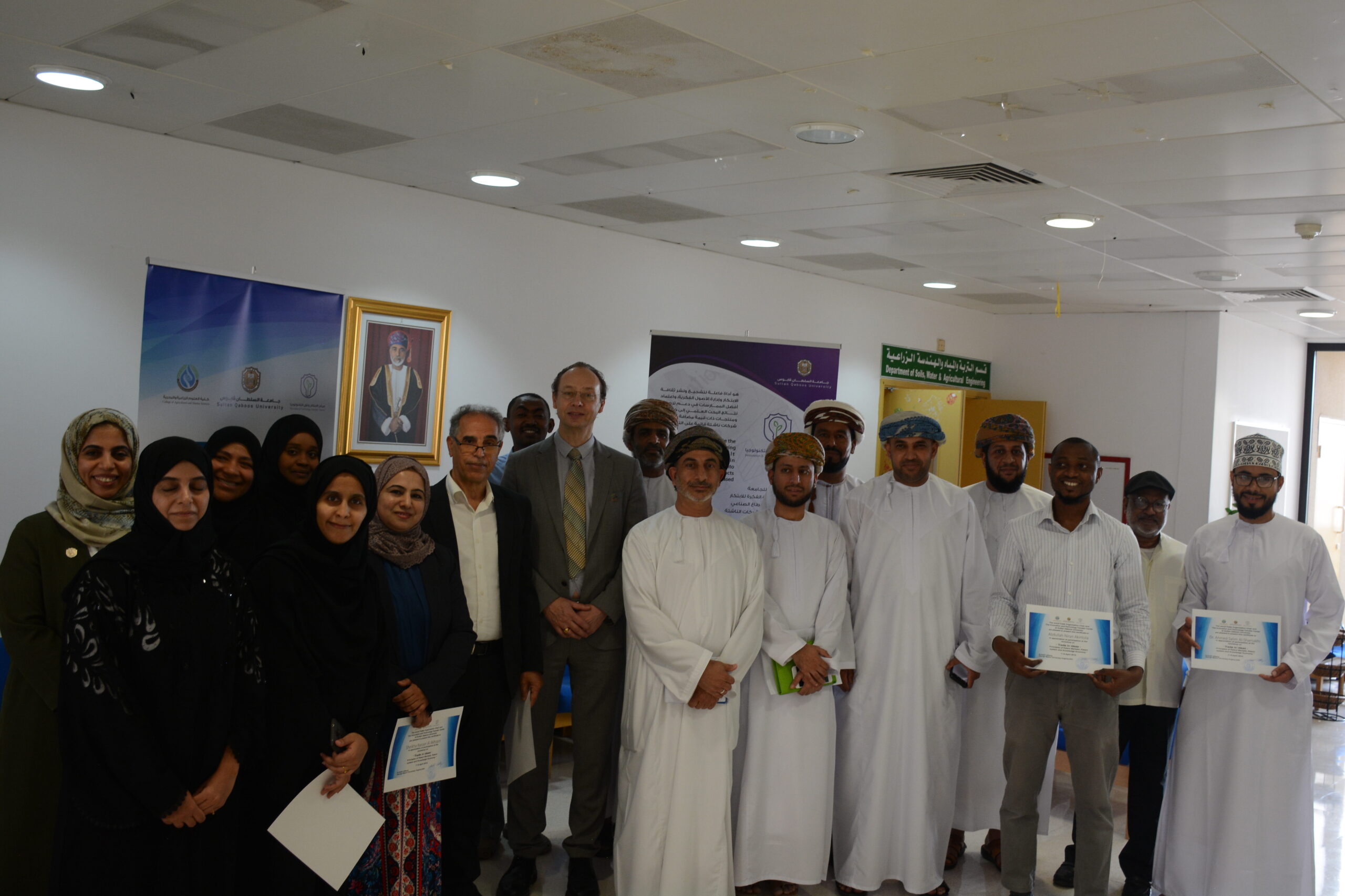
The class of the Trade in Ideas Program.
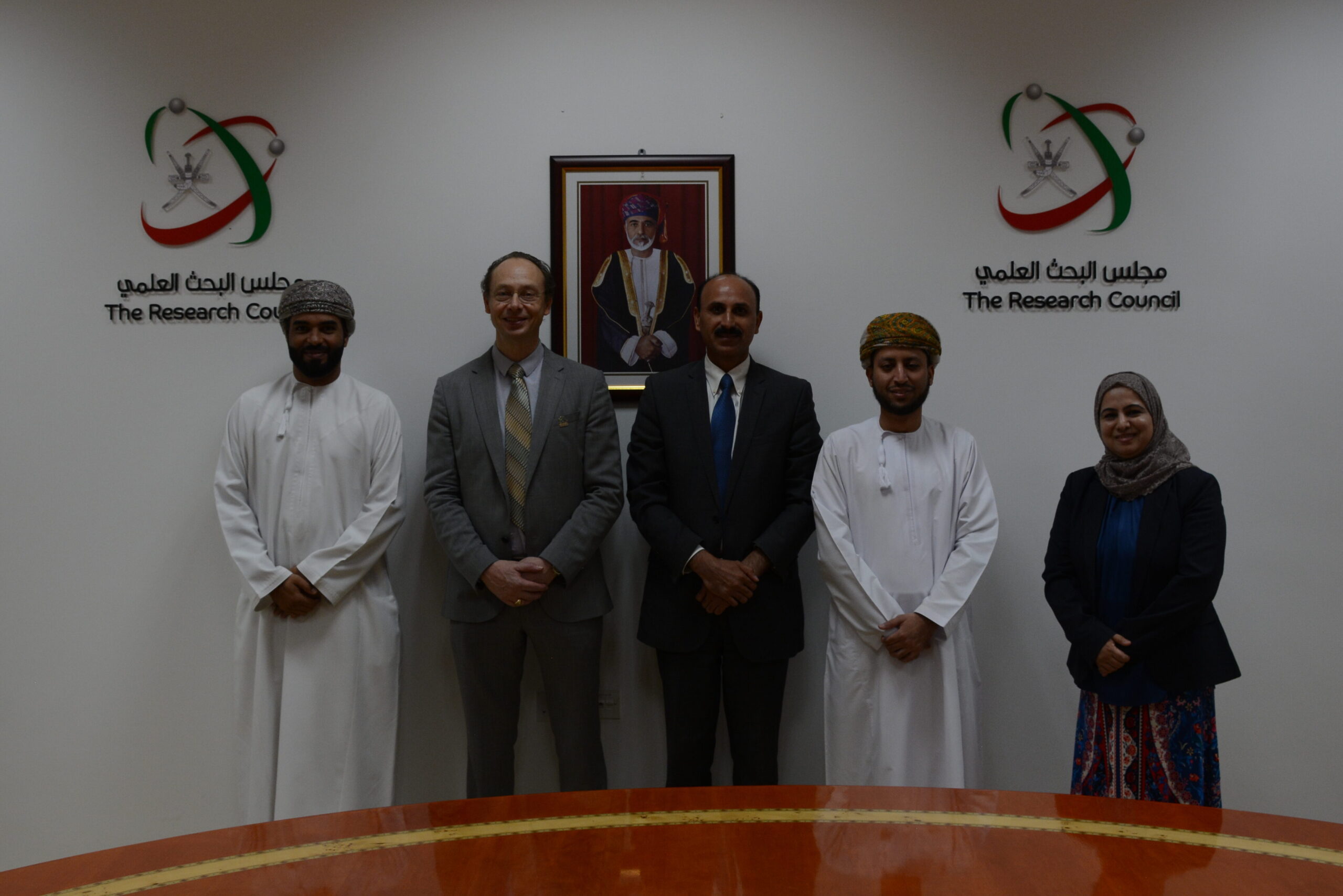
Meeting with The National Research Council.
Presentation at WTO of Trade in Ideas Pilot-study: Next Steps
Chile, El Salvador, Peru, Kenya, Azerbaijan, South Africa and Uganda are participating in a forward-looking study to inform a new economic development policy based on leveraging the human capital formation of developing nations through markets in patents (licensing). A first pilot-study consisting of surveys of inventors on cross-border licensing practices and prices and video-workshops with inventors and policy makers from these countries were reported on Nov 26. The event was organised by WTO with introduction by Deputy Director General Mr. Yi and moderated by Mr. Koopman, chief economist at WTO.
The next steps to inform a national and international policy discussion were presented, including an already started statistics framework study – a key to measure the impact of such a policy.
A key initiative is to create a LDC package with the least developed countries (47 in 2018), providing everything needed to being licensing of their patented technology to the world, leveraging their human capital formation. Some of these inventor-companies may have the potential to become “economic locomotives” for these countries, creating opportunities for their nations.
The Foreign Office of the Kingdom of Sweden funded the pilot and the statistics study.
A recording of the presentation and discussion as well at PPT and communications by four participating countries can be found here, introduction here and powerpoint here.
Sincerely,
Eskil Ullberg
Documents from presentation and full program:
– Introduction: text
– Web-cast presentation: watch recording here.
– Powerpoint: Presentation
WTO Working Group on Trade and Transfer of Technology
On October 26, 10-12, a presentation of the Trade in Ideas Program took place at the WTO for the Working Group on Trade and Transfer of Technology (WGTTT). El Salvador, a participant in the Trade in Ideas Pilot-study, had asked the EC, through Sweden, the funder of the pilot-study, to give an overview of the principle and program in eluding some early results.
If any additional information about the program is desired, please email: eskil@ullberg.biz
Enclosed is the powerpoint from the meeting. See: Powerpoint for WGTTT, 2018-06-27
WGTTT: https://www.wto.org/english/tratop_e/devel_e/dev_wkgp_trade_transfer_technology_e.htm
ABC RN (Australia) Interview on “A Global Patent Market”
ABC RN in Australia interviewed on “A Global Patent Market” as a consequence of the Op-Ed together with Edmund Phelps, Columbia.
Should there be a global patent market?
A new report argues that now ‘more than ever the world needs a framework of trade rules to facilitate the exchange of ideas across borders.
Eskil Ullberg is the co-author of that report and he believes that a cross -border technology exchange based on patent protection and enforcement mechanisms could release the creativity of both developed and developing countries.
So what would have to happen for this to work and does the WTO agree?
Hear interview can be listened to here.
Re-publ.: The world is turning its back on the inventor. This is what needs to change
Re-published op-ed with the World Economic Forum.
The world is turning its back on the inventor. This is what needs to change


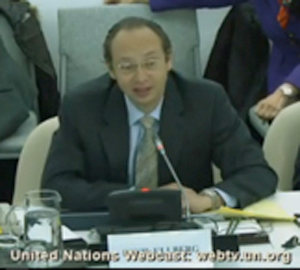







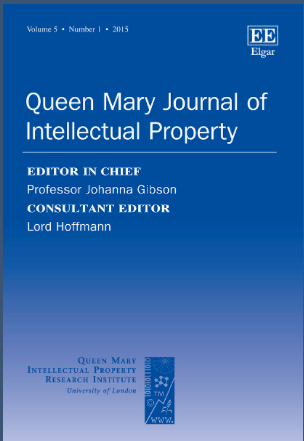


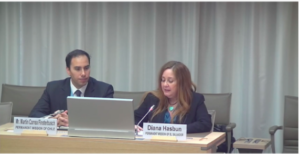
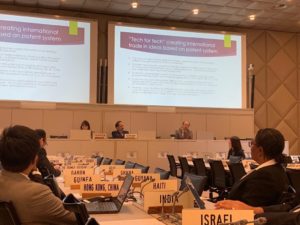

Recent Comments